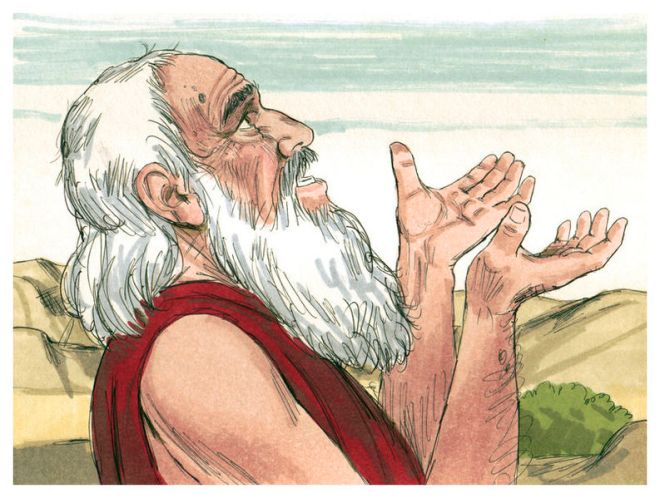Parashah Vayeira (Bereishit/Genesis 18:1-22:24) is the story of Abraham and the three messengers, his bargaining with God, Sodom and Gomorrah, the birth of Isaac, the sending off of Hagar and Ishmael, and the binding of Isaac.

Abraham pleaded with God on Sodom’s behalf by Jim Padgett (1984)
In this parashah we learn the importance of questioning authority, immorality of collective punishment, as well as of threatening people, and of child sacrifice.
The residents of Sodom and Gomorrah were wicked, terrible individuals, and God had resolved that it was time to wipe them out. While Christians tend to focus on the sins of the two cities, Jews tend to focus on the debate Abraham had with God. Abraham, fearing for his nephew Lot, and other possible innocents argued with God about whether it was really fair to do this to wipe out an entire city. God had promised Noah that He would never wipe out the entire world again. Abraham likely recalled this when being motivated to make this argument.
Abraham said that it was not right to smite an entire city because there might be innocent good people who did not merit punishment. Abraham asked what if there were fifty good people in the city, would God still destroy it? God replied that He would not. But then, Abraham wondered about if there were only forty-five people who were good. God, again, said that that would spare the city. Abraham continued, hoping that the city would be spared if there were only forty, thirty, twenty, and even ten people that were good. Each time, he reiterated his deference to the Creator, but still argued with Him, that the city should be spared. God respected Abraham for questioning whether the action was appropriate. As it would later turn out, not even ten people could be found.
God sent messengers to Sodom to determine if the city was truly deserving of destruction and as bad as it seemed. They rested in the city square when Lot stopped by to invite them into his home. Soon after, the townspeople gathered at the door, and wanted to rape the messengers. Lot wouldnt allow it, and as they were about to break down the door, the messengers flashed the crowd with a blinding light, allowing the family of Lot and the messengers to escape. The city was then destroyed, but the innocents were allowed to avoid that fate. Only those who commit crimes are to be punished.
In a somewhat contrary story, Abraham is commanded to sacrifice his beloved son, a gift from God, Isaac. He does so, without question, which is odd considering his previous defiance. It may be that he knew it would have a good ending. In any case, Abraham goes to sacrifice his son, and as he is about to, another messenger appears to stop him. He then sees a ram and sacrifices the ram instead. Here we see the condemnation of putting your children into harms way and if one ever gets that idea, they are not to take it seriously. Later on, sacrificing children is explicitly prohibited. This story is widely condemned for its seeming inhumanity, but it has a happy ending, which is foreshadowed. Abraham told his servants that he and Isaac would return. This seems to suggest he knew all along that it was a demonstration, not meant to actually occur.
It must be reiterated that harming and threatening people is not acceptable behavior. Time and again, this theme returns, and it is one of the chief tenets of liberty. God has respect and support for those who do not just go with the flow. Those who think about the consequences of actions are to be held up as guides.
